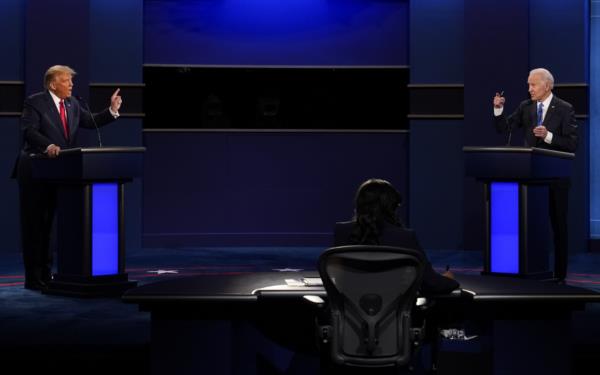
President Biden unveiled a new tactic in his general election campaign against Donald Trump, delivering a fiery speech in South Carolina, where he repeatedly referred to his GOP rival as a 'defeated loser' and questioned his mental acuity. The president took the opportunity to remind the audience of Trump's controversial remarks about fallen American soldiers, which were reported to have referred to them as 'suckers and losers.' Biden expressed his outrage towards Trump's comments and defended his own son, calling Trump the true loser in the race.
The president's strategy mirrors a similar approach he employed before the 2022 election, where he emphasized Trump's presence on the ballot and effectively made the election a referendum on the former president. This tactic proved detrimental to Republicans, resulting in significant losses in governorships, state chambers, and a narrow majority in the House of Representatives. Trump's inability to remain silent in face of Biden's provocations further intensified the focus on him, highlighting the Republican Party's more extremist candidates and weakening their chances in the election.
Looking ahead to the 2024 election, both Trump and Biden seem prepared to frame the race as a referendum on the former president. While elections typically center around the incumbent, Trump is determined to make himself the focal point once again, with Biden seemingly ready to oblige. This dynamic sets the stage for a contest between a candidate who is broadly acceptable to many (Biden) and one who is intensely liked by a few but disliked by a larger portion of the population (Trump).
Despite some lukewarm sentiments among Democrats towards President Biden, recent polling data suggests that the Democratic base is still largely supportive of him. The results from the New Hampshire primary indicate that Biden maintains a strong base within his party. This contrasts with previous elections, where incumbents with lower approval ratings often faced more prominent challengers. In Biden's case, such challenges have been limited in large part due to his support among Democrats.
The absence of prominent challengers like Ted Kennedy or Bernie Sanders reflects the understanding among Republicans that Trump's appeal is limited to around 46 percent of the electorate. The Republican strategy now appears to focus on suppressing Biden's vote or dividing his constituency enough to sway the electoral college in Trump's favor. Several attempts have been made to create alternative candidates, but none have gained significant traction.
In other news, a recent speech by Congressman Dean Phillips drew attention as he urged the audience to listen to his remarks, highlighting the challenge of capturing attention in a crowded political landscape. However, Phillips' presence as a challenger to President Biden is seen as relatively weak, with suggestions that he might redirect his political aspirations towards positions more fitting to his experience.
As the 2024 election approaches, both Trump and Biden are carefully positioning themselves to gain an advantage. While Biden aims to consolidate his base, Trump seeks to create division within the Democratic Party. The upcoming campaign is set to be a battle between a candidate who appeals to a broad range of supporters and one who relies heavily on the devotion of a smaller, passionate base.







